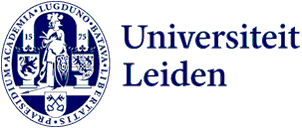
A quick call on the war in Ukraine: 'Putin has made a diplomatic end almost impossible'
The war in Ukraine is entering a new phase with the announcement of a partial Russian military mobilisation and the intention to annex four Ukrainian regions. Why is Putin making these decisions just now and what consequences will they have for the course of the war? We talk to professor and Russia expert André Gerrits about it.
That Putin is really going to send 300,000 men to the front, Gerrits has his doubts: 'They’ll never manage to get them together anyway. Anyone in Russia with a bit of money and connections will try to wriggle out of the mobilisation. But even if Putin doesn’t get 300,000 men together, the mobilisation will at least allow him to compensate for the soldiers who have so far been killed, wounded or taken prisoner of war.'
Concentrating on land preservation
Partly because of the expected lower turnout, Gerrits says we therefore do not need to expect a major Russian offensive in the short term. 'The Russians mainly want to concentrate on preserving what they have and preventing another failure, as happened with Kharkov in recent weeks. They barely had a military line of defence there at all, which the Ukrainians have benefited from considerably with their offensive. Without that Ukrainian advance, Putin probably wouldn’t have taken the decision to partially mobilise. ‘That’s where the men who are being called up now will be deployed,' he says. Putin is hoping to use this to carry the war over the winter, if necessary.
Annexations
Gerrits sees Putin's decision as a sign of incapacity. 'It shows that his original ambition - the so-called special military operation - has actually failed.' It is not the first time in the war that Putin has had to adjust his plans. 'His original ambition was to make Ukraine a vassal state. Now Russia wants to declare four regions in the east of the country (ed. Lugansk, Donetsk, Kherson and Zaporizhzhya) part of Russian territory.'
Although Ukraine and the West have already indicated they will not recognise the annexations, Gerrits does believe they will change the political reality. 'From then on, the war will be waged on Russian territory. The Ukrainians won’t care about that and will continue their warfare, but they are dependent on Western arms supplies to do that,' he explains. 'The West may at some point start scratching behind its ears and wondering whether those annexed territories are worth the risk of escalation.'
'Diplomatic end impossible'
Gerrits does not expect the West to immediately stop its support for Ukraine in the event of annexation. 'That will only happen if the war lasts so long that continuing it becomes politically or economically unacceptable to us.' That’s an advantage for Ukraine for the time being, as fighting on then seems to be the country's only option. 'Once Russia has annexed this part of Ukraine, it will be almost impossible to reach an agreement on ending the war. Zelenski doesn’t want to negotiate about his own territory. So, Putin has made a diplomatic end to the war even further away. Those who warned that this will be a long process are probably right.'
